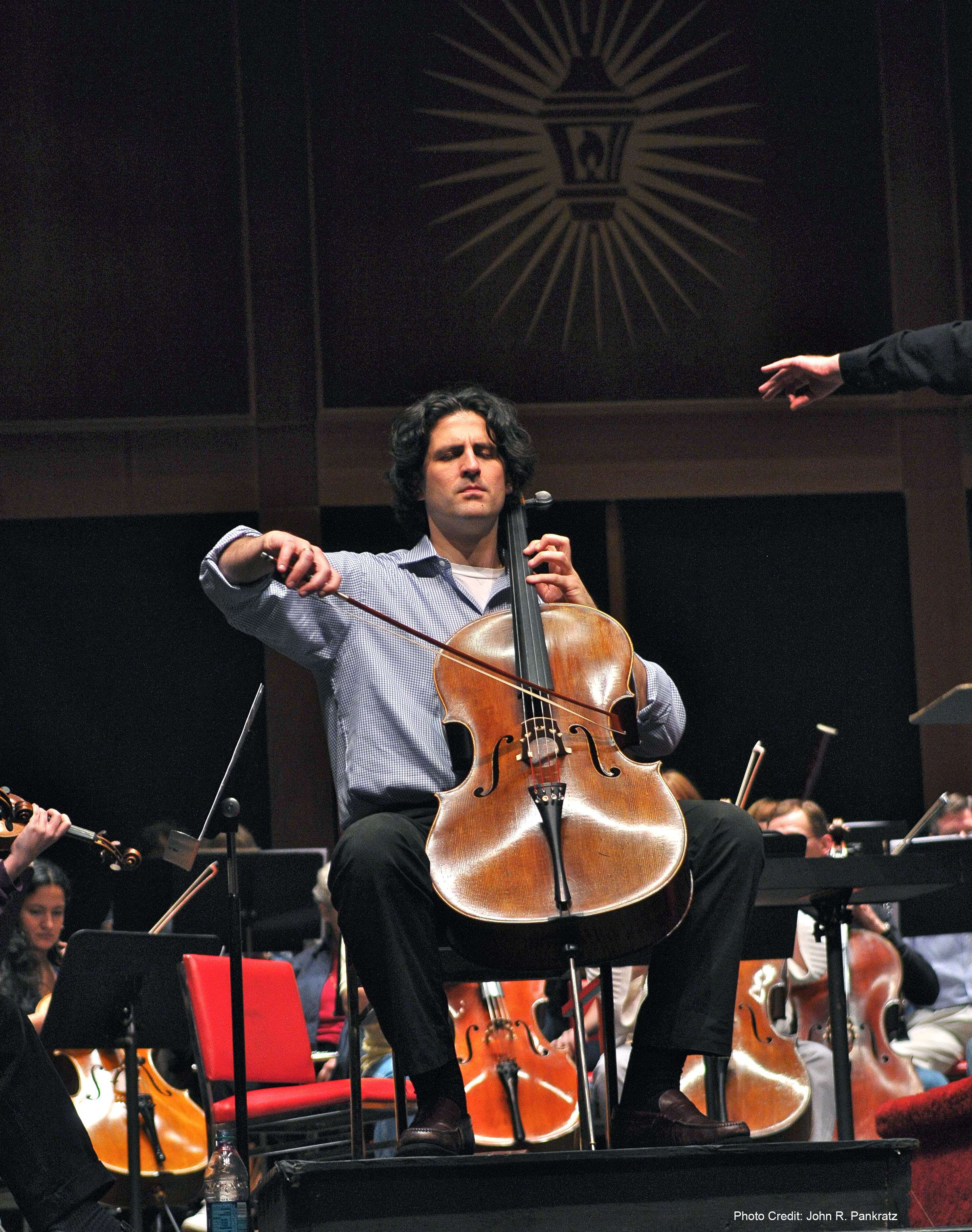|
Back
Mixed Feelings Phoenix
Symphony Hall
03/07/2013 - & March 8, 9*, 2013
An-Lun Huang: Saibei Dance, from Saibei Suite No. 2
Edward Elgar: Concerto for Cello in E minor, Op. 85
Antonín Dvorák: Symphony No. 7 in D minor, Op. 70
Amit Peled (cello)
The Phoenix Symphony Orchestra, Mei-Ann Chen (Conductor)

A. Peled (Courtesy of PSO)
Music Director of the Memphis Symphony and the Chicago Sinfonietta, Mei-Ann Chen returns to Phoenix after a creditable concert in 2011 at Symphony Hall. This time around she chose two well-known (to say the least) pieces of the repertoire, and one that was worth discovering.
Israeli cellist Amit Peled’s career has really taken off in the past three years or so and this fine musician is now very much in demand all over the world. Incidentally, Peled has three cellos at his disposal: Pablo Casals’ Goffriller (1733), an Andrea Guarnerius (ca. 1689), and a modern Wolfgang Schnabl, Op. 136 (need we say more?). Last night, he chose the latter.
From the very first four insistent chords in the first movement, to longer-than-usual pauses, to the slow poco piů lento leading to the adagio in the fourth movement, he seems to be swept up by the music, establishing an uncanny rapport with Mei-Ann Chen and the orchestra. Though Peled does not seem to have the desire to impress by his virtuosity, the technique is admirable, especially in the fast crescendo with pizzicati chords of the second movement. His approach is sincere and heartfelt, without the slightest attempt to mask his feelings. The playing of the third movement’s Adagio, as well as the extended soliloquy of the fourth, are interiorized, lyrical, and moving. The overall rendition projects the required emotion, a sense of Romantic abandonment, and the Elgarian richness and melancholy. The tone is warm, glowing at times, somber at others. On the podium, Mei-Ann Chen places appropriate stress on the musicians, aiming to emphasize the work’s dark undercurrents. Although the strings are just a little too indolent at times, the woodwinds and brass offer a clear sound and their performance never loses impetus.
Amit Peled was once described by composer Oded Zehavi as “Jacqueline du Pré in the body of a farmer”. Certainly an enormous compliment but quite a mountain to climb... Regardless, this was a stirring performance and Peled, with his charismatic stage presence and artistry, brought the house to his feet.
After intermission, things don’t fare as well as in the Elgar and Dvorák’s Symphony No. 7 leaves us with mixed feelings. Chen underscores the dark D-minor, impresses with staccato phrasing and fast tempi in the first movement but places hardly any emphasis on the lyricism of this symphony. The theme becomes rushed, it does not seem to flow naturally and almost loses its crucial bucolic quality. Despite the power and fury, the brass sound a bit disorderly and unfocussed in climaxes. The ingenious and subtle third movement with its six beat-measures (3+3, or 2+2+2) is not as precise and disciplined as it ought to be and in a movement where rhythm is everything, it becomes deadly. The finale is unobjectionable, with an exciting coda.
The program started with Saibei Dance from Saibei Suite No. 2, a piece written by Chinese-Canadian composer An-Lun Huan (born 1949-) during China’s cultural revolution. This subtle work, a celebration of the harvest season in the touristic region of Shaibei near Beijing, incorporates folk melodies and traditional songs. It is a perfect illustration of music that synthesizes Western and Eastern musical styles and it would have been interesting to hear this composition in its entirety. Works by this prolific composer are certainly near and dear to Chen and she conducted from the heart.
The Phoenix Symphony seems to have underperformed in the second half of the program last night. Insufficient rehearsal time? A matter of taste? Probably a little bit of both. Notwithstanding the reservations in the Dvorák, Chen and the orchestra received a standing ovation.
Mei-Ann Chen’s Website
Amit Peled’s Website
Amit Peled plays music by E. Bloch
Christian Dalzon
|